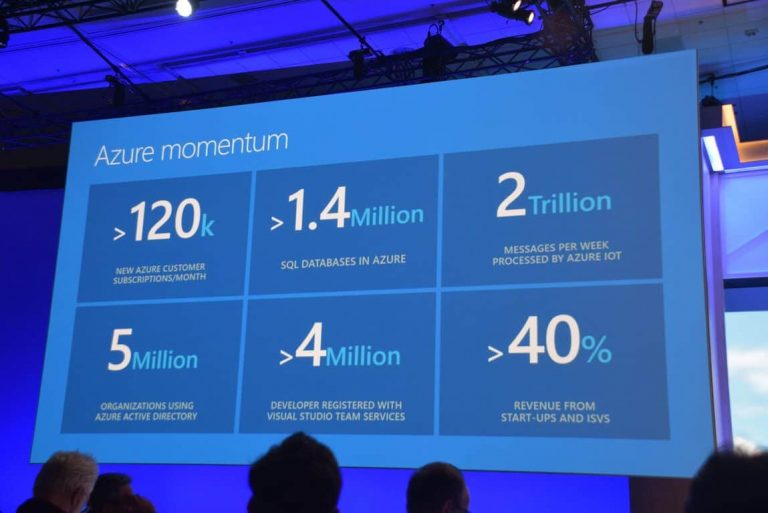A handful of JP Morgan analysts have gotten together to surmise the state of cloud computing over the next few years and their results are a bit surprising, to say the least. In a 50 page note to their clients, Doug Ammuth, Rod Hall, Philip Cusick, Mark Murphy and Sterling Auty, analysts at JP Morgan, predict that a new phase of cloud computing is comin up with Amazon currently leading the pack.
However, due to a potential shift in how IT professionals adopt and migrate to the use of more public cloud solutions over the next few years, Microsoft could run away with the top spot among CIOs used to more traditional on-premise IT infrastructures.
Analyzing the responses from 207 chief information officers at various companies leveraging budgets of $600 million or more annually, the JP Morgan analysts predict that that 40% of the upcoming enterprise workload will be conducted on public cloud solutions. The new numbers gathered are up from the 16.2% previously recorded.
While it seems like conventional thinking to point to the current cloud computing champion to lead the way in the near future, JP Morgan analysts also point to surprising new developments that could be damning for other, more traditional, providers such as Oracle and SAP as Microsoft and Amazon continue to grow.
Both Microsoft and Amazon are offering price competitive alternatives to CIOs and firms looking to shift and transition to the cloud while cutting cost in the process, something that is endangering more traditional providers who provide seemingly limited flexibility for substantial investments.
Similar to the differences between Office and Google’s productivity software Google Apps, Microsoft’s Azure appears to be favored by larger firms boasting higher annual revenue versus Amazon’s AWS, which smaller businesses find more benefit. It should be noted, however, that these are predictions at best and while the current trajectory has Amazon and Microsoft escalating a war in the cloud, market disruptions are not out the question and neither are unforeseen setbacks for any company entering the public cloud solution arena.
With that being said, Microsoft has made significant strides in adding value to its Azure platform with services such as Azure Container Service, Premier Support, Cortana Intelligent Cloud, tie-ins to Office 365 and various developer tools to name a few products.



